Our services

Child Psychology
Here We treat with extensive care for children’s problems like – Hyperactive children, hypoactive children. Children who lie and steal, Bed wetting, anti -social Behavior, Nail biting, thumb sucking, study habits, stammering and stuttering

Addiction
we understand the devastating impact that alcohol addiction can have on individuals and their loved ones. Our approach to treating alcohol addiction is rooted in compassion, evidence-based practices, and a deep understanding of the complexities of addiction.

Depression
Depression, also known as major depressive disorder (MDD), is a serious mental health condition characterized by persistent feelings of sadness, hopelessness, and a lack of interest or pleasure in activities that were once enjoyable. It affects how an individual thinks, feels, and handles daily activities, impacting their ability to function and maintain relationships.

Anxiety
Anxiety is a natural and adaptive response to stress or perceived threats, preparing the body to either confront or avoid potential dangers. However, excessive and persistent anxiety can become a mental health disorder, known as anxiety disorders, which can significantly impact a person’s daily life. Here’s an overview of anxiety and anxiety disorders:

Panic Attacks
We specialize in providing compassionate and effective therapy for individuals experiencing panic attacks. We understand the overwhelming nature of panic attacks and the profound impact they can have on one’s quality of life. Our approach to treating panic attacks is centered around empowering individuals to understand and manage their symptoms while building resilience and confidence.
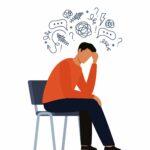
PTSD
The effectiveness of PTSD therapy can vary greatly from person to person. It is crucial for individuals to work with mental health professionals to tailor a treatment plan that suits their specific needs and circumstances. A combination of different therapies often provides the best outcomes.

Eating disorder
Treatment for eating disorders should be personalized to meet the unique needs of each individual. It often involves a multidisciplinary team, including mental health professionals, medical doctors, dietitians, and sometimes physical therapists.

General self-improvement
The effectiveness of self-improvement therapy varies from person to person. It’s important to explore different methods and find what works best for your individual needs and goals. Working with a therapist or coach can provide personalized guidance and support.

Relationship counselling
Relationship counseling, also known as couples therapy or marriage counseling, involves working with a trained psychologist or therapist to improve the dynamics and satisfaction within a relationship. Choosing the right therapist is crucial for the success of relationship counseling so choose the best.

Sexual dysfunction
Sexual dysfunction therapy only for Women and couple addresses various issues related to sexual desire, arousal, orgasm, and pain. The goal is to improve sexual health and well-being, which can involve both physical and psychological interventions.

Weight management
Weight management therapy is a comprehensive approach designed to help individuals achieve and maintain a healthy weight. It incorporates various strategies, including dietary modifications, physical activity, behavioral changes, and sometimes medical or surgical interventions.

Low blood sugar
Low blood sugar, or hypoglycemia, primarily requires medical management, but it can also significantly impact psychological well-being. Addressing these psychological aspects is crucial, especially for individuals with diabetes who frequently experience blood sugar fluctuations.

Counselling for Enuresis
Enuresis, commonly known as bedwetting, is a condition characterized by involuntary urination during sleep, typically in children but sometimes persisting into adolescence and adulthood. Counseling for enuresis can be highly effective in addressing both the emotional and behavioral aspects of the condition.

Procrastination
Procrastination is a common issue that can significantly impact personal and professional life. Psychological treatments for procrastination focus on understanding and addressing the underlying causes and developing effective strategies to improve time management and productivity.

Child Psychology
Child psychology treatment is a collaborative and dynamic process that involves the child, their family, and the psychologist working together to promote the child’s well-being and development.
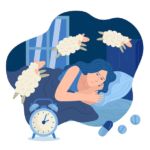
sleep disorder
Treating sleep disorders often involves a combination of psychological, behavioral, and medical interventions. CBT-I typically begins with educating individuals about healthy sleep habits, such as maintaining a consistent sleep schedule, creating a relaxing bedtime routine, and optimizing the sleep environment.
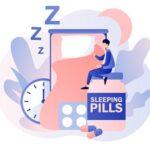
Insomnia
Insomnia, a common sleep disorder characterized by difficulty falling asleep, staying asleep, or experiencing non-restorative sleep, can significantly impact one’s quality of life and overall well-being. Psychological treatments for insomnia focus on addressing underlying factors contributing to sleep disturbances and implementing strategies to improve sleep quality.

Substance uses
Treating substance use disorders typically involves a combination of psychological, behavioral, and sometimes medical interventions to address both the underlying causes of substance use and the associated behaviors.
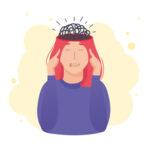
Overthinking
Overthinking, also known as rumination or repetitive negative thinking, can be a challenging pattern of thought that negatively impacts mental health and well-being. Counseling for overthinking typically involves therapeutic approaches aimed at identifying and challenging unhelpful thinking patterns, developing coping strategies, and promoting mindfulness and self-compassion.
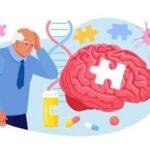
Alzheimer’s disease
Alzheimer’s disease is a progressive neurodegenerative disorder characterized by cognitive decline, memory loss, and impairment in daily functioning. While there is currently no cure for Alzheimer’s disease, various treatment approaches aim to manage symptoms, slow disease progression, and improve quality of life

Bipolar Disorder
Bipolar disorder, formerly known as manic-depressive illness, is a mental health condition characterized by extreme and fluctuating mood swings that include episodes of elevated energy and intense excitement (mania or hypomania) and episodes of low mood and energy (depression). These mood swings can range from intense elation and increased activity to deep sadness and hopelessness.



